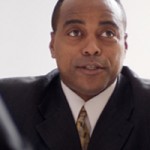Do You Have These Customer Facing Skills?
There is no easy way to be the best. Part of it is achieving skills and attributes, and part of it is just plain hard work The skills in this post will make a noticeable difference quickly. Paying attention to these, and you wil see the benefits early and often. Always be the best!
________________________
I hope I never sound like a broken record, but there are some ‘rules’ that I believe in. One of them is being prepared; another is mastering the relationship. Those two are important, but there are more. Realize that you can change the game with these skills and activities.
It is imperative that you have command of some very important skills to help you be successful. We are going to make the assumption that you have a command of the requisite sales skills. Warning…those skills are not enough. You need skills regarding relationship building, responsiveness, and being effective.
It is work being prepared, just as it is work doing those activities that make you effective. There is no way out around that. I assure you…these things will reward you for the rest of your career.
Skills and Activities that Change the Game!
Be an Expert or a Specialist
Visit these BSJ articles - Your Customer Needs an Expert and More On Being an Expert
Yes, your customer does need an expert. They may not have told you, or they might have used some key phrases such as, “I need someone who understands my business.” Customers do not want pretenders so study your trade and your area of specialization. When you specialize, you will want to get some certification, accreditation, or degree. In the absence of those being available, you will want some recognition notoriety. One way or another, you want to be recognized. Don’t take this one for granted as it definitely changes the game.
Network Effectively
Visit these BSJ articles– Networking for the Black Sales Professional and Know Your Elevator Pitch
Whether you’re a sales professional that works for a larger concern, or an entrepreneur who runs a one-person shop, you need to hone your networking skills to a degree that you are effective and efficient. You know the importance, as the professional who is solid at networking effectively is never without someone to present to. Yes, it is speed dating at its finest but there is no activity like it that can yield these types of favorable results. You will get a lot of practice at this and a lot of time for trial and error.
Create Deep Enduring Relationships
Visit these BSJ Articles – Deepening Your Customer Relationships and Deepening Your Customer Relationships Part II. I would also suggest visiting Should You Ask your Customer for Feedback?
Should You Ask your Customer for Feedback?
Unless your sales job is transactional such as a one-time sale, you will need to have an actual relationship with your customer. You will need to get to know them, listen to them, and be responsive. If you cannot develop a relationship that is more than casual, you are always at risk for another sales professional. Relationships take time, develop dependence, and generate trust. Who will risk their position, project, and profits on you and your product if you have not been able to develop a relationship?
Be Responsive
Visit these BSJ articles – Responsiveness – the Objective of the Sales Professionaland Following-Up! – Correspondence Creates an Edge.
Being responsive and exceeding expectations can separate you from other sales professionals. Excellent follow-up is an activity that needs more attention. It can begin to give you a special preference that accrues to someone that others can only hope to copy. The responsive professionals are in demand because they do the things that others only do intermittently. They communicate, keep commitments, and look toward the future. This is a requirement to be the Ultimate Sales Professional (BSJ – Ultimate Sales Professional 1, Ultimate Sales Professional 2, and Ultimate Sales Professional 3) as it definitely separates the professional. Responsiveness is easy to talk about, but more difficult to do, as it requires you to exceed customer expectations, and be what your company needs as well. It can be done, and you will see that at a point, these two different objectives intersect at a point.
Be Memorable
Visit this BSJ article– Make Yourself Memorable
 It is not good enough to be good, or even the best, if you are not remembered! Take the time to make sure they remember you as it will show well for all reasons. Always be the professional and never miss a chance to present your (yes, your) brand, as opposed to the company you work for. Your brand in addition to being responsive and all of the other fine attributes, you stay close. You drop a handwritten note showing your appreciation. You pass along emails and newsletters that should concern the customer. You strengthen the customer’s knowledge and he becomes dependent on you.
It is not good enough to be good, or even the best, if you are not remembered! Take the time to make sure they remember you as it will show well for all reasons. Always be the professional and never miss a chance to present your (yes, your) brand, as opposed to the company you work for. Your brand in addition to being responsive and all of the other fine attributes, you stay close. You drop a handwritten note showing your appreciation. You pass along emails and newsletters that should concern the customer. You strengthen the customer’s knowledge and he becomes dependent on you.
Master the Skills – Make the Money
There are more skills that you might need, and more that are crucial at different times, but in the sales arena, if you put these together along with the skills that make you accomplished within the organization that you work in, you can ‘change the game’.
Review the articles that I have shown, and you will see the specifics. Remember, you cannot gain mastery without working hard at these. You will be accomplished with them!
Your comments are always welcome.
 July 17, 2014
|
Posted by Admin9!
July 17, 2014
|
Posted by Admin9!

 Categories:
Categories:  Tags:
Tags: 

Your Comments